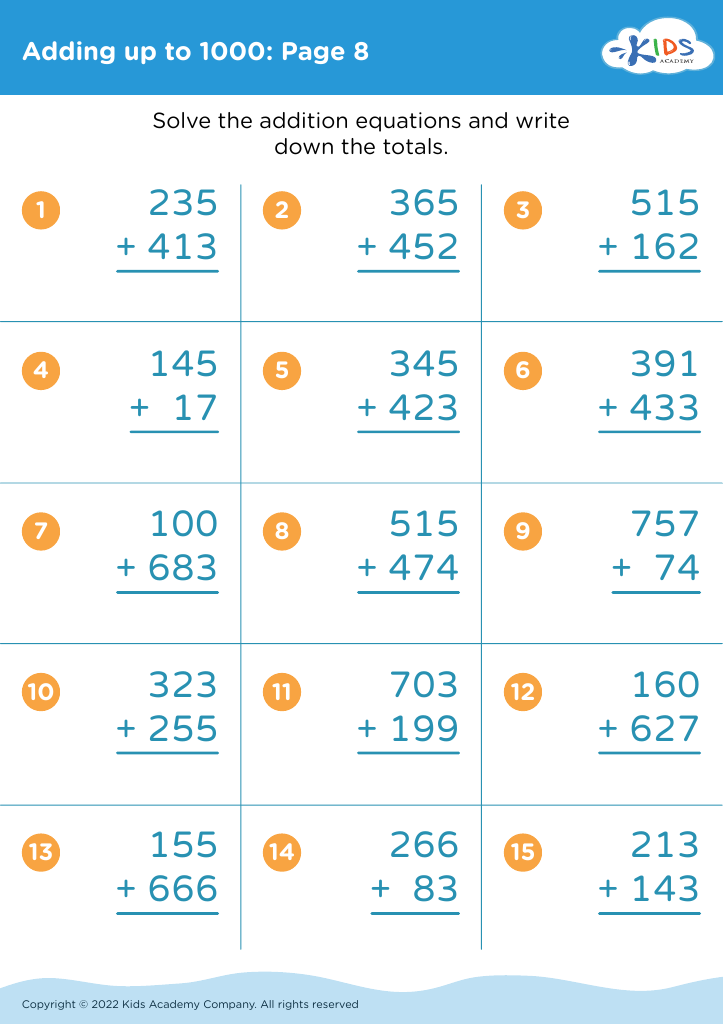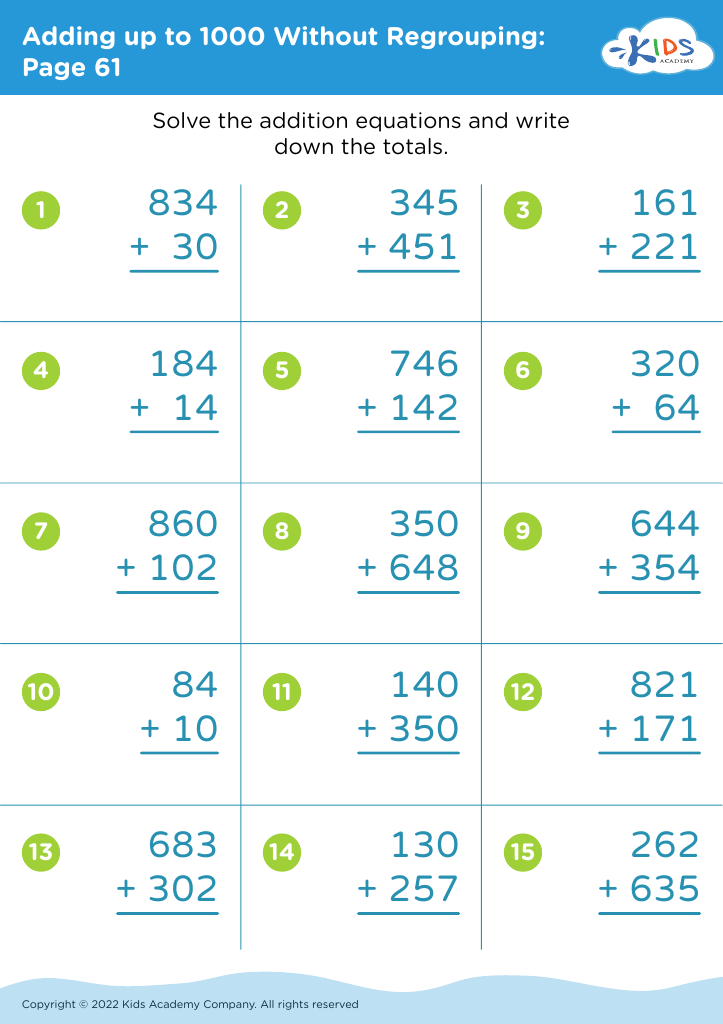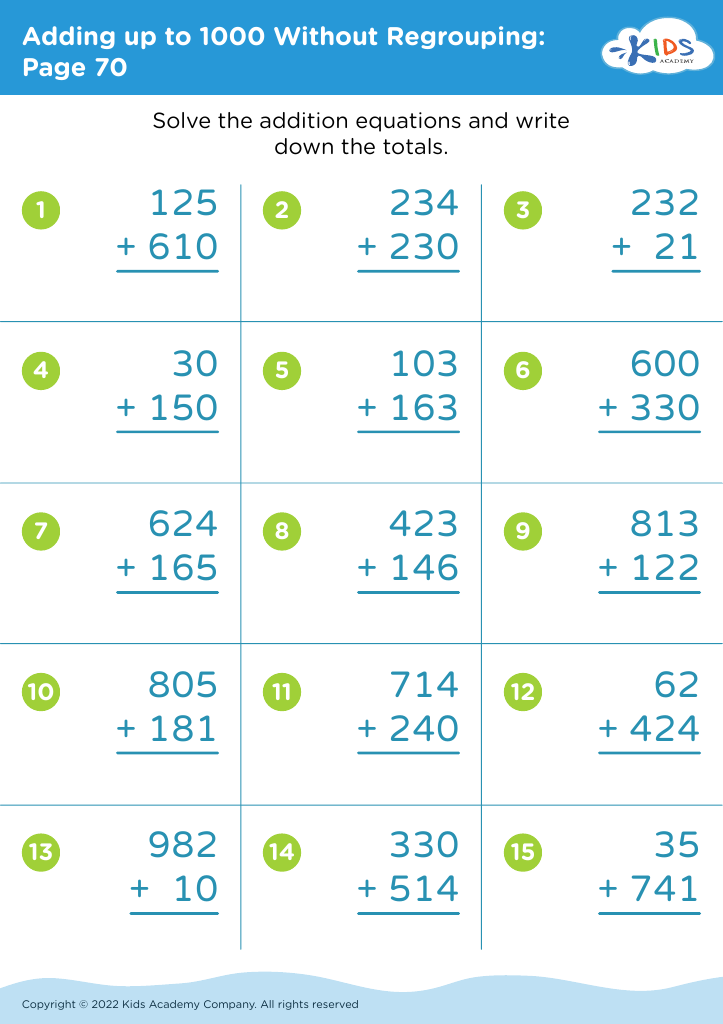Basic Addition Adding up to 1000 Worksheets for Ages 3-9
6 filtered results
-
From - To
Introducing our comprehensive "Basic Addition Adding up to 1000 Worksheets" specially designed for kids ages 3-9. Our carefully crafted worksheets aim to build foundational math skills, making learning addition fun and engaging. Each worksheet features vibrant illustrations, step-by-step guides, and a variety of exercises that progressively increase in difficulty. Perfect for both classroom use and at-home practice, these worksheets help kids develop essential arithmetic skills while boosting confidence. Whether your child is just starting with basic addition or looking to refine their skills, our worksheets provide the perfect practice to mastering addition up to 1000.
Crucial to developing lifelong mathematical skills, early proficiency in basic addition up to 1000 sets a strong foundation for children aged 3-9. Parents and teachers should prioritize this for several reasons. First, it nurtures numerical fluency, allowing children to confidently solve real-world problems involving quantities, like understanding money, time, and measurements. Second, mastering addition at an early age stimulates cognitive development, enhancing memory, reasoning, and problem-solving abilities, which are valuable across all subject areas.
Thirdly, these skills are vital as a gateway to more advanced mathematical concepts such as subtraction, multiplication, division, and fractions. Children who lag in basic addition might face increased challenges in future academic pursuits, shaking their overall confidence in learning. Furthermore, early success in math builds a positive attitude and reduces math anxiety, fostering a growth mindset toward learning.
Engagement from parents and teachers ensures that children receive individualized support and encouragement, transforming learning into fun and confidence-building exercises. Games, interactive tools, and practical applications help solidify these principles early on. In essence, caring about basic addition for young learners is a strategic investment in their academic success and overall intellectual growth.
















